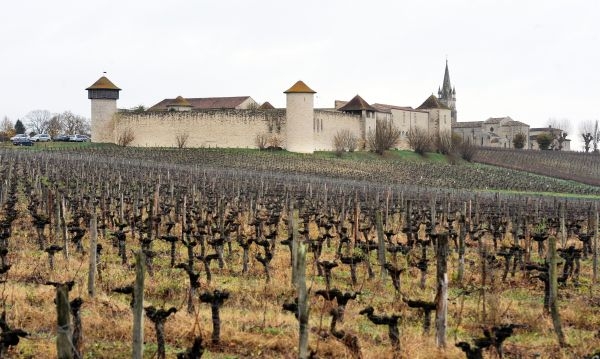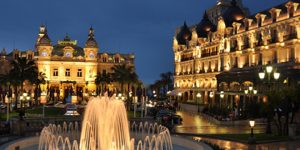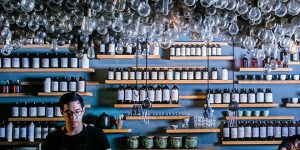Chinese tycoons snap up Bordeaux chateaux
The world’s largest producer of alcohol from goji berries and an elusive tycoon have become the latest super rich Chinese investors to invest in Bordeaux wine estates. Already a prized investment for the increasingly wine-savvy Chinese, five more chateaux in the heart of France’s most renowned wine country have been snapped up in the past […]

The world’s largest producer of alcohol from goji berries and an elusive tycoon have become the latest super rich Chinese investors to invest in Bordeaux wine estates.
Already a prized investment for the increasingly wine-savvy Chinese, five more chateaux in the heart of France’s most renowned wine country have been snapped up in the past few weeks.
Zhang Jinshan, 48, founder of the Ningxia Hong group based in northwestern China, bought Chateau du Grand Moueys from its German owner on Friday.
Grand Moueys is a sprawling, 170-hectare (420-acre) estate near the village of Capian in Bordeaux’s Entre-Deux-Mers region.
On the other side of the village, Qu Nai Jie, the president of the Haichang Group, bought another historical gem, Chateau de Grand Branet and three more in the region: Chateau Branda, Chateau Laurette, and Chateau Thebot.
Qu had already acquired Chateau Chenu Lafitte in 2010, and according to the manager of Grand Branet, is actively pursuing further acquisitions.
In and around Bordeaux, more than 12 chateaux are in various stages of acquisition by Chinese investors, according to the Bordeaux Chamber of Commerce (CCIB), which operates a China desk to assist would-be investors in the region.
Real estate agent Eric Groux of Conseil Patrimoine in Paris has been selling chateaux for several years with clients in Hong Kong, China and Singapore.
Chinese customers prefer relatively unknown estates in modest “appellations” — the approved wine-growing areas. “They can buy a chateau with vineyards for the price of a Paris apartment,” Groux said.
Last November, Groux brokered the sale of Chateau Monlot, a seven-hectare Saint Emilion grand cru, to actress Zhao Wei and her husband for some four million euros ($5.4 million).
“They fell in love with the estate and are passionate about wine,” said the former owner Bernard Rivals, who as part of the deal will remain at the estate for two years, helping them in their new role as Bordeaux chateau owners.
But the Chinese are not just buying wine estates as novelty holiday homes, many of them are serious about wine as a craft and as a business.
“They are interested in the cellars and they surround themselves with experts,” said Groux. “They want to improve the wine and they have the means to do it. It’s a good thing for France’s vineyards.”
The investments reflect China’s spectacular thirst for Bordeaux, which now accounts for exports of 420,000 hectolitres per year worth 322 million euros to France, according to the Bordeaux Wine Council.
Chateau purchases are often part of a larger strategy to cash in on China’s wine boom.
The Haichang Group, which has interests in shipping, real estate and amusement parks, is working with CCIB to bring Bordeaux’s popular Wine and Dine festival to the northeastern Chinese technology hub of Dalian next July.
Typically, Chinese chateau owners ship their entire production back to China — as Haichang does with Chenu Lafitte — effectively closing off the chateau’s production to Western palates.
In a noteworthy exception, Zhang intends to keep 10 to 20 percent of Grand Moueys in the European and US markets. He also hopes his estate will become a meeting place for cultural exchange amidst wine and luxury.
“This will be a Chinese chateau and part of the new culture in Bordeaux,” said Zhang, while sipping tea in his 19th century salon.
“There are a lot of chateaux in Bordeaux but our speciality will be a chateau with Chinese culture.”
Plans are in place for a resort with a nine-hole golf course, nature trail, tennis courts, hotel and 70-seat gourmet Chinese restaurant in the neo-Gothic chateau.
The only thing there will not be is a swimming pool.
The estate is in a district known as Entre-Deux-Mers or “between two seas” and which is bordered by two major rivers.
“There is already too much water. A pool would be bad Feng Shui,” said the managing director of Zhang’s estate, Li Lijuan, referring to the Chinese practice of aligning properties with what are believed to natural forces around them.










